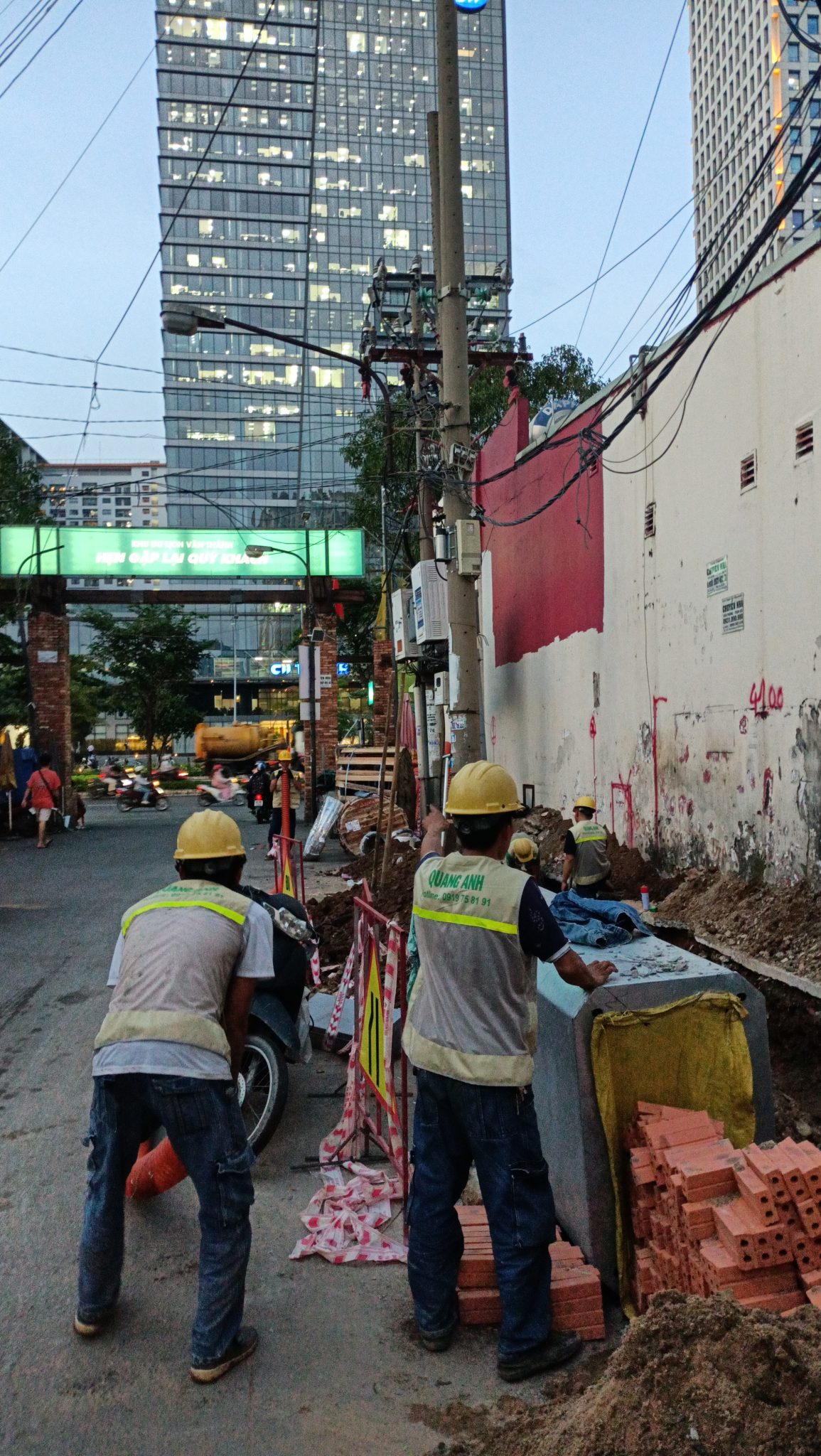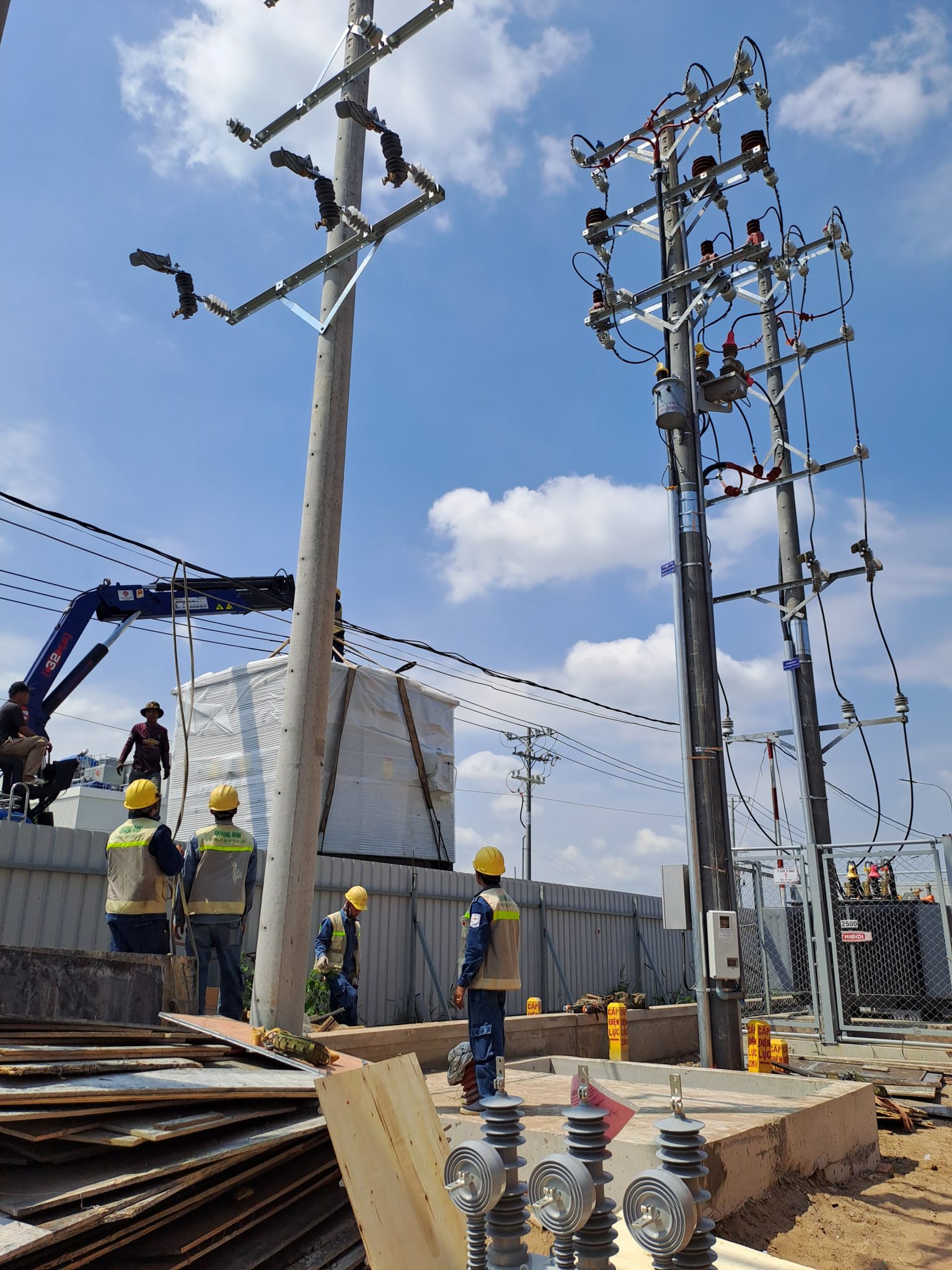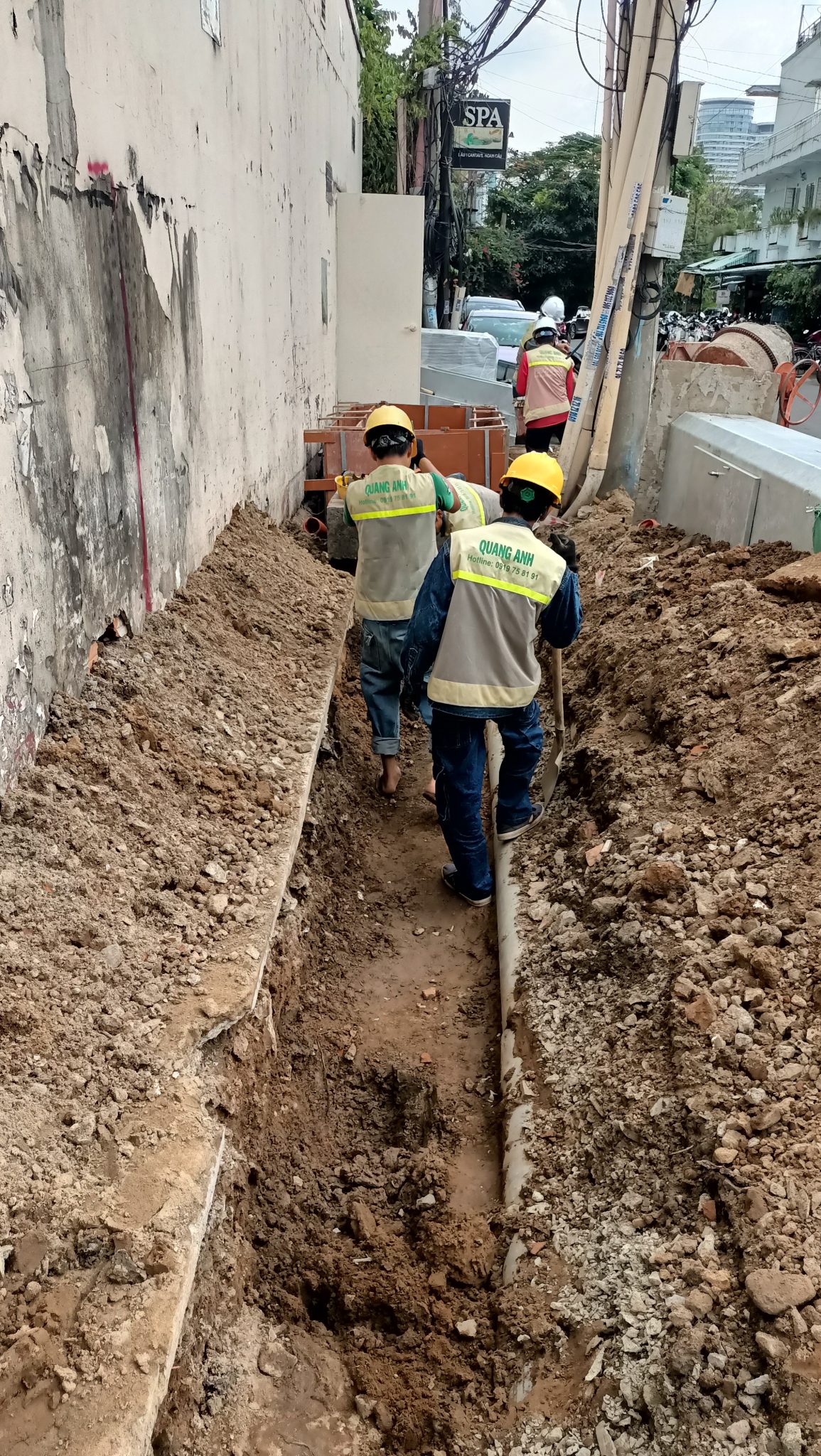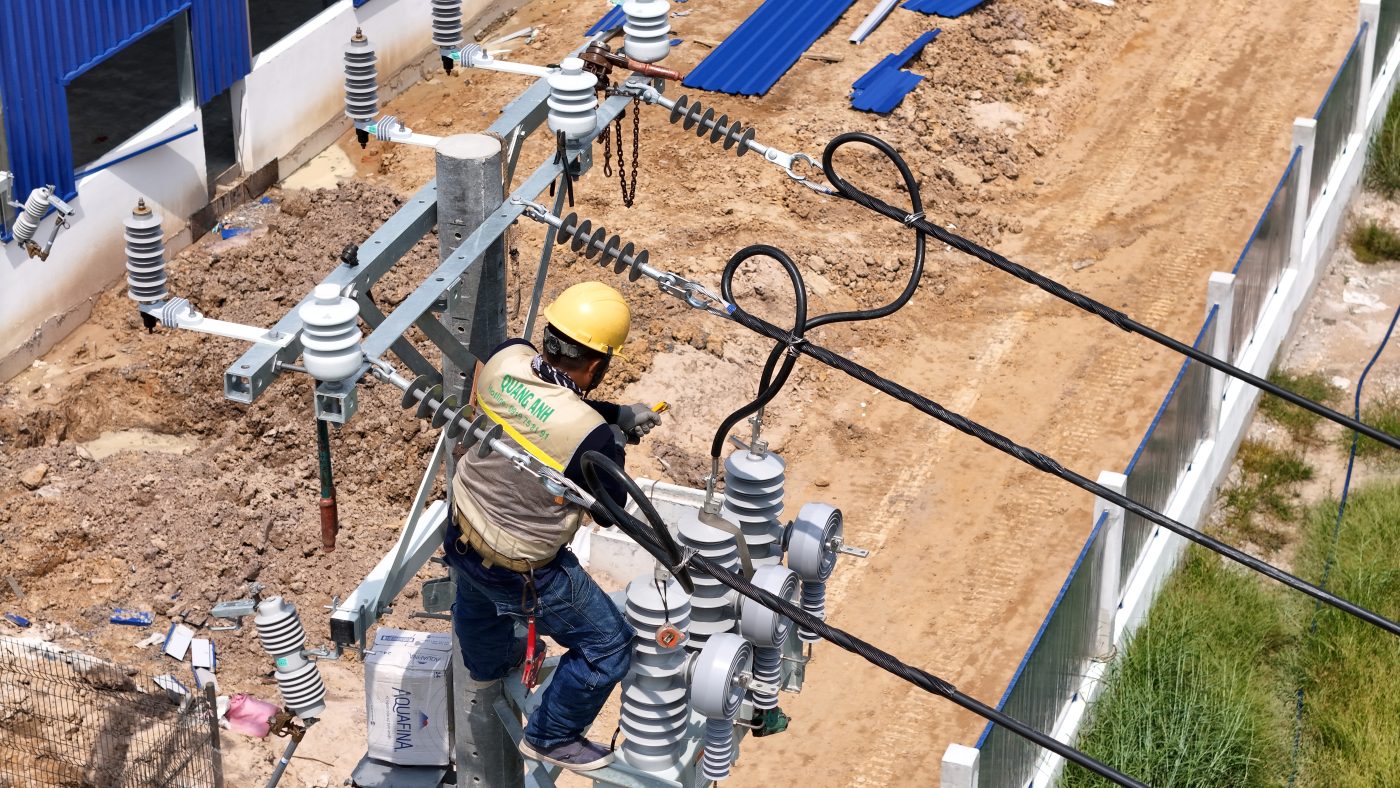Solar EPC contractors are accountable for the entire process from design and supply to construction and operation of solar energy projects, ensuring cost-effectiveness and quality.
Responsibilities and Roles of Solar EPC Contractors
Solar EPC contractors play a crucial part in the design, tendering, and construction phases of solar projects. Each project commences with solar energy design, optimized for performance and aesthetics. Project management at an EPC level demands expertise and adept coordination to meet timelines and quality standards. Post-construction, contractors often provide operation and maintenance (O&M) services to sustain system operations.
Engineering Design
EPC contractors take a leading role during the solar energy design phase. This starts with topographical surveys and an analysis of solar energy conditions at the installation site. They then create technical drawings and design a solar system tailored to the project’s specific needs and site conditions, focusing on optimal designs for high performance and return on investment.
Procurement
The procurement of equipment is a vital component of the EPC contractor’s responsibilities. They must identify and select reliable suppliers to procure necessary materials and equipment, including solar panels, inverters, and monitoring systems. Sourcing management is also aimed at ensuring project quality, timeline adherence, and cost control.
Construction
During this phase, the EPC contractor installs and assembles the system components. This includes solar panels, electrical devices, and cabling systems, all under close supervision. Additionally, all activities must comply with technical and safety standards, guaranteeing sustainability and optimal performance. The final step is the commissioning and handover of the facilities to the investor.
EPC Project Management
EPC contractors hold full responsibility for project timelines, quality, and effectiveness. This includes risk management, quality control, and coordination among stakeholders, ensuring solar energy project completion on schedule and meeting technical standards.
Operation and Maintenance
Beyond project completion, some EPC contractors offer support services for system operation and maintenance. This ensures stable operation and extends the system’s lifespan.
Difference from Turnkey Contracts
Unlike turnkey contracts, EPC agreements focus on three main areas: design, procurement, and construction execution. Unlike turnkey projects, these do not cover investment project preparation, clearly defining responsibilities and entitlements of participating parties.

Key Factors in Choosing an EPC Contractor
When choosing a solar EPC contractor, factors like experience, service ecosystem, and industry reputation are vital. The contractor should provide comprehensive solutions, from finance to technology, meeting renewable energy project requirements. Notably, the capacity to manage projects of all sizes is a significant advantage for reputable contractors.
Selecting an EPC contractor for renewable energy projects, such as solar power, requires careful consideration across multiple key criteria. An EPC contract needs clear scope of work, including design, procurement, and construction, empowering contractors to manage the project effectively while adhering to technical requirements and timeline control.
A critical point is having a professional EPC project management process. Contractors with a stringent management system help control timeline, quality, and costs, perfectly meeting investor requirements from design through to commissioning.
Contractor experience is also essential. Practical experience from past projects signals capability and mitigates risks for investors. Success from previous projects serves as proof of their ability to offer optimal solutions, with proven quality over time.
Exceptional EPC technology quality and equipment reliability are crucial. Contractors should use advanced technology and trustworthy equipment from prominent brands like ABB, Mitsubishi, Schneider, ensuring project efficiency and durability.
Moreover, contractors need the ability to integrate and coordinate effectively across procedures—from design, material supply, to construction management. This capability optimizes project costs and completion time.
Proficiency in design and construction brings significant flexibility, allowing EPC contractors to save time and promote creativity during project execution.
Ultimately, choosing an EPC contractor should align with bidding criteria set by law, ensuring compliance with predetermined technical standards, experience, and financial capacity.

Trends and Standards in the Solar EPC Market
Current trends in solar EPC contracting involve adopting technological advancements and high technical standards to enhance project efficiency. Contractors continually innovate in solar energy design and construction, leveraging advanced techniques and new management technologies. Transitioning to integrated services like O&M and financial solutions also marks an essential trend for the industry.
The solar energy sector in Vietnam is experiencing a significant shift with renewable energy development as a core focus. Solar EPC contractors aim to leverage sustainable energy to alleviate supply-demand pressures and boost investment through expanded Power Plan VIII.
An important trend in solar EPC is increasing project size and diversifying project types. Large projects, such as solar farms of several hundred MW, and rooftop solar systems are becoming more common. Interconnecting technologies, such as combining solar and wind power, also contribute to system efficiency.
Additionally, integrating energy storage systems (ESS) is vital, with storage systems projected to exceed 30% by 2025. This not only helps stabilize the grid but also reduces peak shaving, improving operational reliability.
Digitalizing and developing intelligent solar energy systems is also crucial. Virtual power plants and smart management technology optimize operations and system connectivity. This is especially critical given the significant fluctuations in renewable energy sources.
Technical standards for solar power in the EPC market in Vietnam include:
-
Comprehensive EPC Process: Encompasses steps from engineering design, equipment procurement, construction, commissioning, to synchronized operation, ensuring progress and high quality at each stage.
-
Design and Construction: Must strictly adhere to standards set by the Ministry of Industry and Trade and the national power plan.
-
Certified Equipment: Solar panels, inverters, storage devices, substations, and transmission lines need to meet IEC or TCVN standards.
-
Performance and Operation Testing: Systems must achieve committed capacity and be remotely monitored for maximum efficiency.
-
Energy Storage Integration: Safety, longevity, and battery performance standards must align seamlessly with the national grid.
-
Risk Management: Optimizing environmental impact and ensuring worker safety is mandatory at every stage.

Solar EPC contractors offer optimal technical, investment, and strategic advantages to enterprises. By integrating a wide range of services and committing to quality, contractors become increasingly essential in sustainably advancing the renewable energy industry.
Discover optimal energy solutions with QuangAnhcons. Contact our Hotline: +84 9 1975 8191 for consultancy today.
QuangAnhcons specializes in solar EPC services from design to operation, ensuring quality and high efficiency across client projects.
[contact-form-7 id="7239967" title="Contact form 1"]


Related Posts
Tay Ninh Solar Power Planning: Technical Framework, Grid Interconnection, and Rollout Roadmap
Technical overview of solar planning in Tay Ninh: irradiation, grid capacity, permitting, design, operations, and [...]
Dec
Binh Duong Solar Planning: Regulatory Framework, Grid Interconnection, and an Implementation Roadmap for Factories and Industrial Parks
An overview of Binh Duong solar planning: legal framework, interconnection, design, risk management, and an [...]
Dec
Solar Farm Repair: O&M Workflow, IV Curve Diagnostics, Thermography, Inverter Service and Utility-Scale Safety
A utility-scale solar farm repair plan centered on O&M, IV curves, thermal imaging, inverter service, [...]
Dec
Dong Nai Solar Power Plan 2023–2025: Tri An 1,029 MW, Grid Upgrades and the DPPA Pathway
A complete look at Dong Nai’s solar power plan: Tri An 1,029 MW, irradiation potential, [...]
Nov
Quang Ngai Solar Power Plan 2024–2030: Legal Framework, Irradiance Potential, and Development Roadmap
A complete look at Quang Ngai’s solar power plan: capacity targets, irradiance (PVout), development zones, [...]
Nov
Solar Damage Assessment Services: On-Site Procedures, EL/IV/Thermography Testing & Compliance with Standards
Discover IEC/UL/NEC standard solar damage assessment processes: on-site evaluation, EL and IV curve testing, thermal [...]
Nov
Comprehensive Package Estimate for a 1800MVA 500kV Substation: Scope, Configuration 3x600MVA, Standards and Timeline Management
An overview of the 1800MVA 500kV substation estimate: construction scope, configuration 3x600MVA, GIS/AIS, SCADA, standards, [...]
Nov
Factory Electrical Systems: Comprehensive Design and Implementation Guide
Discover the detailed and safe process of factory electrical systems design and implementation. [...]
Oct
Blueprints Required for Factory Construction Permits
Discover the necessary blueprints in factory construction permit applications, from floor plans to electrical and [...]
Oct
What Are the Requirements for a Factory Construction Permit? A Comprehensive Guide
Explore the documentation and steps needed to secure a factory construction permit for streamlined project [...]
Oct
Factory Construction Permit Procedures in Vietnam: Essential Guidelines and Documents
Learn the procedures for securing a factory construction permit in Vietnam, focusing on document preparation [...]
Oct
Key Steps in the Factory Construction Process
Discover the essential steps and requirements for building factories. [...]
Oct
Comprehensive Electrical Substation Solutions by Quanganhcons
Discover the cutting-edge electrical substation solutions offered by Quanganhcons for industrial applications. [...]
Oct
Investment Costs for a 1MWp Solar Power System and Influencing Factors
Explore the investment costs for a 1MWp solar power system in Vietnam and the influencing [...]
Sep
QuangAnhcons: Elevating Wind Energy Solutions
Explore QuangAnhcons' leadership in wind energy and renewable solutions in Vietnam. [...]
Sep
Electrical Contractor Strategies at Becamex Industrial Park
Discover the strategic advancements and partnerships of the electrical contractor at Becamex Industrial Park. [...]
Sep
Investment Insights for 1MW Wind Energy in Vietnam: Costs and Opportunities
Discover the detailed analysis of costs and opportunities for investing in 1MW wind energy projects [...]
Sep
Advanced Electrical Installation Solutions by QuangAnhcons
Explore advanced electrical installation solutions and modern technology with QuangAnhcons. [...]
Sep
Enhancing Industrial Electrical Services with Quanganhcons
Discover Quanganhcons' expertise in industrial electrical services, offering efficient and sustainable power systems. [...]
Sep
Comprehensive MEP Solutions by QuangAnhcons: From Design to Maintenance Excellence
Discover optimal MEP solutions with QuangAnhcons, dedicated to excellence from design through maintenance. [...]
Sep